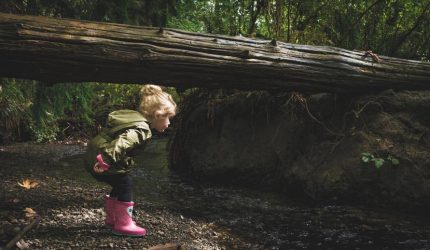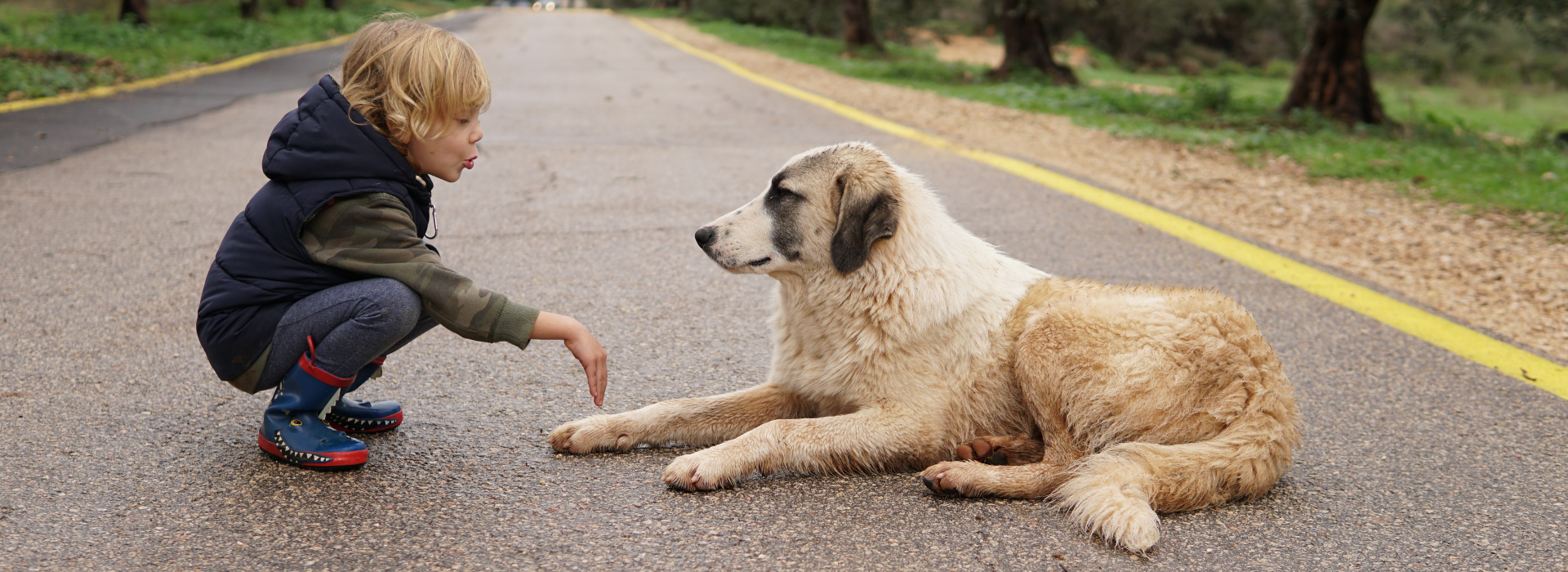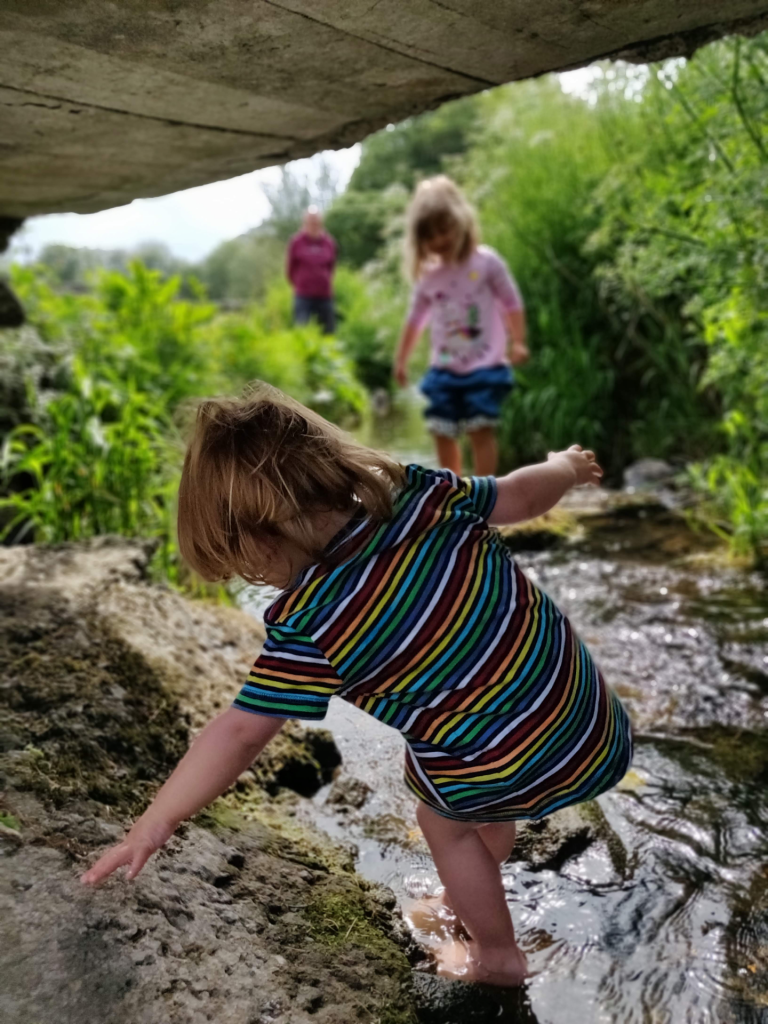

Education in times of schooling (at home)
These days, many specialists offer advice on how to live with our children who no longer go to school due to the COVID-19 pandemic. As a mother of unschooled (but educated) children and promoter of the EOTAS alternative, I dare to propose my version of schooling, meaning pretty much any other option but the one wrongly considered a classical school.
The word “school” comes from the Greek “skhole”, meaning the time spent philosophizing. In Latin, “schola” meant an intermission of work, a time devoted to enjoyable learning. The philosopher Constantin Noica wrote in his Philosophical Journal:
“I dream of a school where, frankly, nothing is taught. To live in peace and quiet, somewhere on the fringes of a human settlement, and the youths, a handful of young men from around, to come there to free themselves from professorial tyranny. For lessons should be given by everything and everybody. Everything must be learnt from outside in and inside out. They are allowed one thing, and one only: to ask questions, from time to time.
But don’t you see that they, too, have something to say? And don’t you see also that we might not always have anything worth saying to them? We are mere middlemen between them and their own selves. …States of mind – that is what must be given to others; not content, not advice; not teachings.”
In ancient times, this school on the outskirts of a fortress took place in an olive grove of the Greek hero Akademos (hence, the current name of Academy). Now, in the 21st century, we go back to that idea. We have gathered youngsters eager to free themselves from tyrannies of all kinds, and we do meet, not in an olive grove, but in the Botanical Garden to discuss and research everything that falls into our hands.
We also meet in research institutes and any other circumstances that catalyse learning. Communities, facilitators and mentors got together in several cities. Ideally, we hope to find an Akademos to accommodate our efforts, allowing a free, personalised, and holistic education guided by polymaths.
In English, “holistic” comes from the term “whole”. Holistic education helps children know and understand themselves, both emotionally and rationally, both as part of a whole (the universe) and as a universe of the particles that make them up.
For some people, holism is equivalent to that 2500 years old concept from which we fail to “extract” ourselves – that man is made up of three “components”: body, soul, and spirit.
It is like saying that the universe is made up of 4 fundamental elements – water, air, fire and earth. I try to “restore” the meaning of the word “holism”, which we can hardly use because it fell into derision.
Holism is the basic principle of personalised medicine. For example, the genetic profile, correlated with already manifested diseases, allergies and other “imbalances”, allows the physician to configure a proper treatment.
Holistic education works on the same principle. Every child is a curious little human who sees the world as a fascinating playground. For a child, there is nothing more appealing than “wasting time” digging through the rocks on the banks of a river, endlessly examining their roughness, splashing around in every single puddle, shaping the clay until he/she “gets dirty” all over. Above all, there is that special feeling, flowing through all the pores, that we, the “big people”, have forgotten..

A child would stay there for hours, even days, while we, the adults, who “knew” what it “needed” to be done, told them that they need a “purpose” in life and their play “must” stop. We pull them out of that “whole” which allows them to learn through all fibres, feel through all receptors, perceive through all neurones. We stop them from expressing emotions related to actions that may seem illogical to us but have the logic of a reality to which we no longer have access. Try to remember how you were at the age of your children.
In elementary school, I loved to delay my return home from school. I used to roam the neighbouring forests without a target while enjoying all the “signals” of nature. I wasn’t looking for anything in particular, and I didn’t have a goal. It was just pure immersion in that ocean of information, of waves with different frequencies. After my mother found out what I was doing instead of going home, she started to tell me what could happen to the girls in the woods. Thus, I entered the ranks of the world.
Of course, parents only want what is best for their children. That is why we protect them and explain to them what might happen in various circumstances. If we could, we would implant chips in them for constant surveillance. We unceasingly transfer to them our anxieties, inherited or inoculated, our fears, and insecurities. Worst of all, we instil into their minds the idea that the world is a “bad place”, a place full of dangers that one must be prepared to face.
We seem to be living the safest times so far. Despite the media’s desperate efforts to convince us of the imminence of the world’s ending, statistics show that we have never lived better than we do now. Could we use this “good” to look deeper into ourselves?
This may happen if we let our guard down a little, reactivate our sensors and start taking slow and deep breaths. We could look at our children, arguably, the better copies of ourselves. Look how a child digs with a stick full of mud in a pond full of microscopic worlds without having any indication as of “what” to observe, “how” to dig, and what will “happen” to him if he gets his feet wet…
I don’t know why most people think that schooling a child is the same thing as educating him/her. Actually, I know the answer to that. That is because we are still the prisoners of a myth that says the state becomes responsible for our children, whether we talk about education, common sense, or health. The truth is that it is not the state that is responsible for them, but we the parents.
If you “make” a child only because society (your mother, father, neighbours, co-workers, etc.) asks that from you, then you end up passing on the responsibility of raising that child to those who pushed you to do it. Hence, the cognitive dissonance in which many parents, who do not know how to be parents even though they want to, end up living. Those parents astonishingly discover that they have become the clones of their own parents and landed up preaching what they “hated” the most when they were children.
I’m not looking for culprits or victims. I try to expose a problem from the perspective of a person who has children, and who has found a way to let them develop as beautiful and healthy as possible.
That is de-schooling. That is personalised, or holistic, education that offers support and does not impose things. It is done with respect and amazement towards the new beings that grow before our eyes.
I do not want to “crumple” that being by imposing some absurd limits in the name of what is proper.
That is the reason why I got to know myself very late in life, belatedly realising that I am for myself a kind of terra incognita.
Given the current situation – which will inevitably produce a global reset – we do not know what will happen next. For the time being, however, I have two happy, balanced, and healthy children that are up-to-date on their vaccines and live in full harmony with themselves. They have a common sense that I sometimes deem excessive, and they can differentiate between authentic and bullshit, also within people’s speeches.
I do not understand why there is so much noise and false competition at school, why children end up using curse words and arguing with their parents. I want to point out that the so-called “adolescence”, which I was afraid of as a mother, is just a story. If you stay at your child’s side, avoiding constant criticism, and do not unload your adult frustrations on him/her, then the child will never behave improperly.